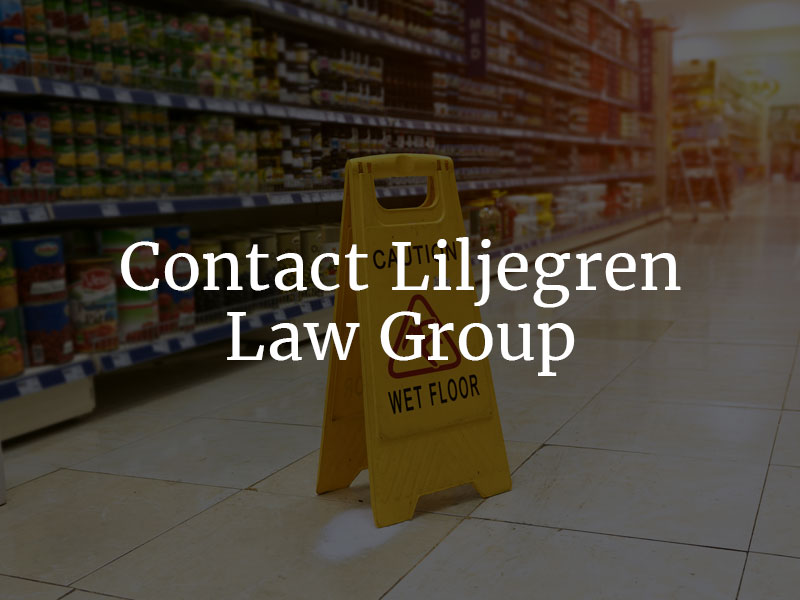Grocery Store Slip and Fall Injuries
Slip and fall accidents can cause serious personal injuries such as bone breaks, pulled muscles and head trauma. Grocery stores are prime settings for slip and fall accidents, with floors that may be waxy, wet or slippery with food debris. If a grocery store slip and fall accident gave you an injury in California, find out if you have grounds for a premises liability claim by speaking to a San Diego slip and fall attorney from Liljegren Law Group.
How to Claim Compensation
The legal doctrine involved in slip and fall accident cases is premises liability. Premises liability laws state that a property owner will be responsible for accidents that occur on his or her property if the owner reasonably should have prevented them. It is a landowner’s legal duty to maintain a safe premises and to reasonably prevent accidents, including slip and falls. A negligent or careless failure to do so could lead to the store having to pay for the victim’s damages.
Statute of Limitations
You may have a claim to compensation if you suffered an injury in the slip and fall and believe the grocery or department store could have prevented the accident. You must also act within two years of the fall to have a valid claim. Two years is the statute of limitations on premises liability claims in California. A lawyer can help you discover if you have all the elements needed to bring a claim against a grocery store for a slip or trip and fall accident.
Common Causes of Grocery Store Slip and Falls
Supermarkets, big box stores, smaller chains and mom-and-pop grocery stores all have the same legal responsibility: to maintain safe premises. While a grocery store might not be liable for every fall accident that occurs within its premises, the company could be financially responsible if it or one of its employees contributed to the accident. Many different hazards could cause a slip and fall accident in a grocery store.
- Spilled liquids, such as milk or juice
- Food debris on the ground
- Recently mopped or waxed floors
- Wet floors from customers tracking in rain or mud
- Uneven or cracked floors
- Display items in the aisles
- Bunched or torn floor mats
- Snow or ice in the parking lot
A grocery store could be liable for a slip and fall if another store would have prevented the accident in the same circumstances. If the store’s employees failed to keep up with cleaning logs and periodic floor inspections, for example, the store could be vicariously responsible for a resultant slip and fall accident.
Do I Have a Case?
You may have a slip and fall accident case if the store owner or one of its employees created, caused or contributed to the source of the fall. If the conditions were normal or to be expected for the store, however, you may not have a claim. It is normal, for example, for a spill to go un-mopped for a few minutes while a staff member responds to the situation. It would not be normal, however, for the spill to sit for hours before someone tends to it. Whether or not you have a case will depend on the circumstances of the fall and the factors leading up to it, as well as if the fall caused you compensable damages.
Contact an Experienced Attorney
Slip and fall accidents can be difficult to litigate as a victim. The grocery store may allege your comparative fault for failing to see the spill, or otherwise try to refute liability. If you suffered soft-tissue injuries, they could be hard to prove since they do not appear on scans or x-rays. An insurance company may try to get you to settle for a small compensatory award. A local personal injury lawyer can help you navigate all these possibilities and fight for fair compensation from the grocery store if it or one of its employees caused your fall.


